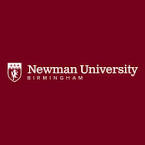During welcome week, you will get to meet the teaching staff and your fellow students. We have a range of exciting activities planned that will make you feel at home as you begin your studies with us.

During welcome week, you will get to meet the teaching staff and your fellow students. We have a range of exciting activities planned that will make you feel at home as you begin your studies with us.
We will be outlining some of the modules that you will be studying and we will do our best to answer any questions you may have. Here is some information that you will find useful as we welcome you to our course.Module delivery
Overview
Early childhood, the quality of education, provision and care, and the roles and responsibilities of all those involved with young children, parents and families, all have a significant influence on children’s achievement and life chances.
The last decade has seen the wider development of early years provision, changes and challenges in aspects of education and care, and the recognition that early childhood and children’s experiences must be supported by a highly qualified workforce.
Government legislation, policy and research have raised the profile of early childhood, education and care and established the requirement for recognised professional qualifications for all those working in the field of early years in public, voluntary and private sectors. This three-year undergraduate course prepares you to work in this exciting profession.
Study
In the first semester you will study three modules.
The Independent Learner module supports your transition to studying at university and will help you to navigate the challenges you may face as an early year’s professional.
You will also explore a module on child development. This module aims to develop knowledge and understanding of children’s learning and development. The module will focus on language, cognition, brain, physical, social and emotional aspects of development, including attachment, transitions and self-regulation.
Finally, you will explore the constructs of childhood discussing ideas around culture, discourses and historical changes in childhood.
Our Values
• We champion the Catholic tradition of social justice that respects the dignity and worth of each individual, contributes to and promotes the common good and seeks to exercise the preferential option for the poor, especially in their access to higher education.
• We strive for quality in all we do and set the standard for others to follow.
• We nurture and celebrate individual and collective success and consistently seek ways to improve all we do.
• We recognise the power of community and building relationships that help us excel.
• We respect and value all contributions, recognising that we are a single community, inspired and united by our shared vision and mission.
• People are at the centre of all we do. In difficult situations we seek to work with understanding, kindness and resilience.
• We are ethical, honest and steward our resources well.
• We honour our commitments and we challenge others to do the same.
• We trust people to act within their areas of responsibility and be accountable for their actions.
Mission
To serve our communities by making high quality education accessible to all who are able to benefit from it and to deliver research and scholarship that has a positive impact on society
Vision
To be a University of growing academic distinction that continually enhances its sense of community based on Catholic values.
© 2025 coursetakers.com All Rights Reserved. Terms and Conditions of use | Privacy Policy